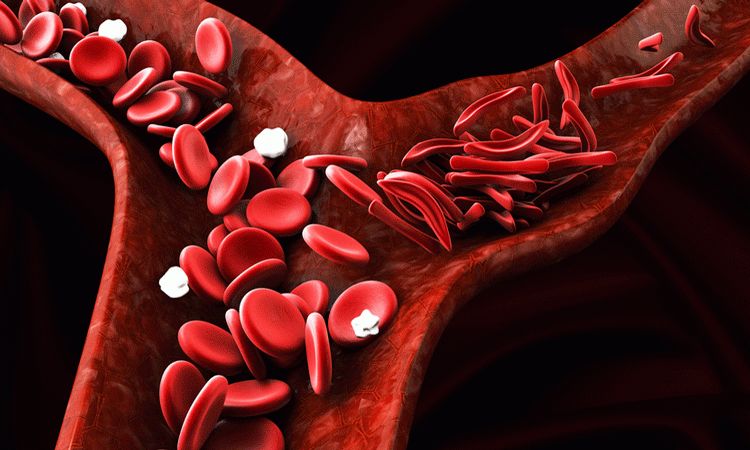HRI depletion may be effective in treating sickle cell disease
Posted: 20 July 2018 | Drug Target Review | No comments yet
A protein identified in the signalling pathway for haemoglobin production has been identified as a possible target to treat sickle cell disease (SCD)…


A signalling protein, HRI, has been identified in a process called ‘haemoglobin switching’ in red blood cells. This signalling protein could potentially be targeted as a drug to treat sickle cell disease (SCD).
Researchers from the Children’s Hospital of Philadelphia (CHOP) and the Perelman School of Medicine at the University of Pennsylvania worked together on cultured human cells.
The team found that blocking the protein reduced the characteristic sickling of red blood cells, distorting their shape and giving the disease its name.
Study co-leader Dr Gerd A. Blobel from CHOP said, “We have found a protein with activity specifically in red blood cells that could be a ‘druggable’ target, possible with a small molecule – a pill patients can take to treat SCD.”
Dr Blobel and study co-leader Dr Junwei Shi, of the Perelman School of Medicine relied on a screening tool using CRISPR gene-editing techniques, focusing on a class of domains including protein kinases. These could be inhibited by small molecules.
It was already known that this signalling kinase regulated the production of haemoglobin, however, the new results identified HRI in a process called ‘haemoglobin switching’, a transition usually occurring in newborns. This is where red blood cells divert from producing a fetal form of haemoglobin to producing an adult form.
The team identified HRI as silencing fetal haemoglobin production in adults red blood cells, and when HRI was selectively stopped, the level of fetal haemoglobin increased. The researchers were able to do this without affecting the viability of cells received from SCD patients. As such, it was concluded that impairing the function of HRI is ‘well tolerated’.
The mutation that causes SCD is present only in the adult form of haemoglobin, and as such affects people after birth. This mutation causes cells to distort their shape into the abnormal crescent shape which then goes on to block blood vessels, damaging organs along the way. The disease can be potentially life threatening, and is currently treated by raising ratios of fetal haemoglobin, despite it not being effective in all patients.
In another experiment, the team found that using HRI depletion alongside drugs which raise fetal haemoglobin levels had a stronger effect than either treatment alone, which supports the theory of combination therapy.
“Our long-term goal is to carry out follow-up studies to evaluate whether this approach improves clinical outcomes in patients,” said Dr Blobel. “At this point, our results suggest that HRI is a potential target for a new treatment for disorders of haemoglobin.”
The study was published in Science.
Related topics
Biomarkers, Cell culture, CRISPR, Protein, Target molecule
Related conditions
Sickle cell disease (SCD)
Related organisations
Children's Hospital of Philadelphia, Perelman School of Medicine at the University of Pennsylvania
Related people
Dr Gerd Blobel, Dr Junwei Shi


